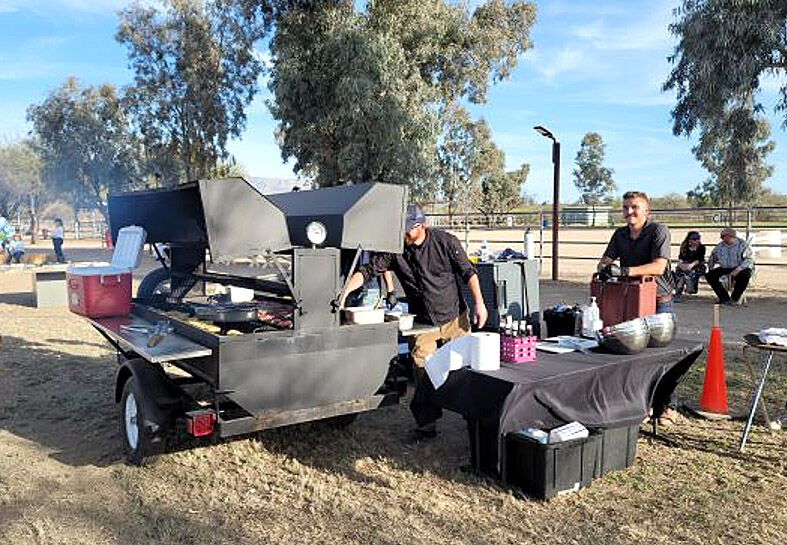Tucsonans can take the reins in supporting a local nonprofit that provides equine-assisted therapies at the 22nd Annual Horsin’ Around to benefit Therapeutic Riding of Tucson (TROT).
The unique fundraiser begins at 4 p.m. on Saturday, March 11, at TROT, 8920 E. Woodland Road.
“Last year was the first time that we held the event on TROT property and it was awesome. We have lots of supporters but not all of them have been to our property and this was an opportunity for them to see the facility and our horses, and to really spend time and develop an intimate relationship with our organization,” said Margaux DeConcini, TROT’s development director.
For 49 years, TROT has been dedicated to improving the physical, mental, social and emotional well-being of children and adults living with disabilities through equine-assisted activities and therapies.
TROT serves a diverse population with diagnoses such as autism spectrum disorder, ADHD, anxiety, depression, traumatic brain injury, cerebral palsy, Down syndrome, hearing/vision impairments, muscular dystrophy, multiple sclerosis, PTSD and other mental health conditions.
Nearly 100 clients each week participate in TROT programs. Those include: adaptive riding; back in the saddle, for those with previous experience with horses; equine-assisted learning, to develop life skills; heroes on horses, for veterans experiencing physical and emotional challenges; riders up, for seniors with age-related challenges; and equine-assisted counseling.
Participation in equine-assisted counseling has quadrupled over the last few years, according to DeConcini. She attributes the growth of the program, which serves increasing numbers of adults, to awareness about the importance of mental health in the wake of the COVID-19 pandemic.
“It is often easier to tell a horse what is challenging you than it is to talk to a person. Talking to a horse is like talking to a dog. They don’t judge you and they are full of unconditional love. Horses act like a mirror: If I feel anxious and I am working with a horse, it will show signs of anxiety, which allows me an external observation of how I feel internally. It makes me think about new coping skills that I can create to reduce my anxiety, and as soon as I do that, I can see the horse reduce their anxiety,” said DeConcini.
The program has been life-changing for Nina Cowley, who is now one of 230 volunteers at TROT.
The native of Germany has been in Tucson for 18 years. She sought out equine-assisted therapy for her mental health a few years ago and connected immediately with Prince Julian, a Morgan horse that works frequently with participants in the counseling program.
Cowley said that the first time she drove down Woodland Road to TROT, she felt like she was coming home.
“Horses were always my escape as a child. I come from a not-so-good childhood home, and whenever I was around horses I felt at peace ... TROT brought that back to me,” said Cowley, who shares that passion as a volunteer horse handler who gives riders cues and helps them to guide horses as they ride.
Cowley strongly recommends equine-assisted therapy and volunteerism at TROT — or both — for anyone looking to improve their quality of life.
“I have come so far since I started with TROT. Everyone thanks me for volunteering and acts like I am making a big sacrifice, but it is mostly selfish because I get to be where I love to be and do what I love to do. It is a perfect exchange. I think I found a treasure in TROT,” said Cowley, who is also assisting with the upcoming fundraiser.
The event is a great opportunity to meet friendly, caring people who enjoy animals and to experience the magic of TROT, she said.
In the process, Cowley and other volunteers hope to raise at least $85,000 to benefit general operating funds, including expansion of programming and facilities, and new staff, horses and equipment.
“The need is so great and we have to pick up the pace to serve our waiting list and the individuals in the community who are interested in TROT programs. TROT has a sliding fee scale for those who are low income and we have never turned anyone away for inability to pay. We always try to find a way to accommodate people because we know how essential our services are,” said DeConcini.
Get your morning recap of today's local news and read the full stories here: tucne.ws/morning





